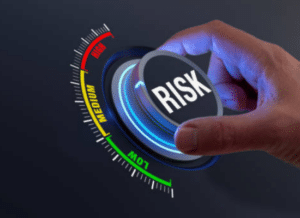Today, many people look beyond corporate earnings and consider (ESG) issues when making investment decisions. For example, some investors boycott manufacturers of tobacco products or firearms. Others prefer to invest in companies that are actively reducing their carbon environmental, social and governancefootprints.
This trend has been accelerating for decades. In fact, ESG criteria is projected to drive one-third of global investments by 2025, according to financial analysis company Bloomberg.
How does your investment portfolio currently rate on these issues? If you haven’t yet considered nonfinancial criteria in your investment strategy, you may want to conduct some research and consider making some adjustments.
ESG Criteria
Here’s a quick rundown on common ESG criteria:
Environmental. These considerations include climate change impact, air and water pollution, energy efficiency, and operational impact on biodiversity.
Social. This category includes labor standards, human rights, gender and other diversity, community relations, and data protection and privacy.
Governance. Board composition, whistleblower protections, executive compensation, audit committee structure, lobbying activity and political contributions are all potentially applicable.
A focus on ESG matters can possibly add value over the long run. For example, a company that focuses on the health and safety of its workers may have fewer lawsuits, lower insurance rates, fewer business interruptions and higher employee retention. Likewise, a company with a diverse board may be better able to recognize business opportunities and foresee emerging market threats than one with board members who have similar backgrounds and experience.
Align Portfolio and Values
Does your current portfolio include investments in funds and companies that focus on ESG issues? The answer may require some research. Keep in mind that some managed portfolios (such as mutual and exchange-traded funds) may invest according to specific ESG criteria. For example, there are many fund options for investors who only want their money invested in environmentally conscious companies. Funds that invest based on conservative social or religious criteria are also available. Some of these avoid alcohol, tobacco and other stocks that violate the values outlined in their prospectuses.
Once you know where individual companies and funds stand on ESG matters, you may decide to shun certain ones — for example, a company with no racial diversity in its executive or board ranks or a mutual fund that buys firearms manufacturer stocks. Or you might shift your portfolio toward investing in companies and funds with lower ESG risks.
Stocks and Bonds
If you’re investing in individual stocks, you can read public filings to find out what those companies say about their philosophy and operations. Currently, the Securities and Exchange Commission (SEC) doesn’t specifically require companies to provide investors with ESG information. But some information related to these risks must be disclosed under U.S. Generally Accepted Accounting Principles (GAAP) in the following financial statement sections:
Description of business. This disclosure describes the business and that of its subsidiaries, including information about its form of organization, principal products and services, major customers, competitive conditions and costs of complying with environmental laws.
Legal proceedings. This disclosure briefly explains any material pending legal proceedings in which the company, any of its subsidiaries and any of its property are involved. It includes disclosure of environmental litigation arising under any federal, state or local regulations regarding the discharge of materials into the environment or protection of the environment.
Risk factors. These disclosures highlight the most significant factors that make an investment in the company speculative or risky.
Management’s discussion and analysis (MD&A). These disclosures enable investors to see the company’s liquidity, capital resources and financial results through the eyes of management. Specifically, companies must identify known trends, events, demands, commitments and uncertainties that are reasonably likely to have a material effect on financial condition or operating performance.
In addition to these disclosures, some companies voluntarily issue separate “sustainability” reports that cover a broad range of nonfinancial issues. Unfortunately, without uniform sustainability reporting standards, these reports can be very inconsistent.
The Financial Accounting Standards Board (FASB) is currently evaluating whether to create more detailed guidance on ESG reporting. In addition, an organization representing investment analysts, the CFA Institute, is developing a quality standard for companies that make claims about their ESG performance. The standard includes annual auditing of those claims by an independent reviewer.
Important: While most ESG investing involves stocks, investors can also buy “green” bonds and similar debt investments created to help finance a variety of revenue-generating environmental and social projects.
Eye on ESG-Oriented Funds
If you prefer the automatic diversification of investing in mutual funds and exchange-traded funds (ETFs), you can choose from thousands that claim to use ESG criteria. Prompted by the explosion in ESG investing, investment analysis companies have devised index benchmarks and ESG ratings to help you narrow down your choices.
For example, MSCI, a global provider of ESG-oriented investment products, offers hundreds of indices that help investors analyze ESG performance. These indices provide apples-to-apples comparisons so you can judge the performance of mutual funds, ETFs and individual companies based on their niche and objectives. Some indices track “broad spectrum” ESG investments, others focus on specific issues, such as carbon emissions or empowering women.
Another leading player in the global ESG research field is Systainanalytics (acquired in 2020 by investment research company Morningstar). Morningstar’s analysis of ESG funds in 2020 arrived at mixed conclusions. On one hand, funds that tried to reduce ESG risk outperformed their benchmark indexes more often, and by larger margins, than funds without an ESG focus. On the other hand, what Morningstar describes as “intentional” ESG funds — those that “explicitly aim to advance ESG goals” — didn’t demonstrate better performance than other funds simply on the basis of their “intentional” ESG strategy.
What’s Right for Your Portfolio?
If you decide to adjust your portfolio to be more ESG-oriented, you have many options to choose from — and you probably won’t need to sacrifice financial performance to achieve your nonfinancial goals.
Please contact Judy Barnhard via our online contact form for more information.
Councilor, Buchanan & Mitchell (CBM) is a professional services firm delivering tax, accounting and business advisory expertise throughout the Mid-Atlantic region from offices in Bethesda, MD and Washington, DC.




